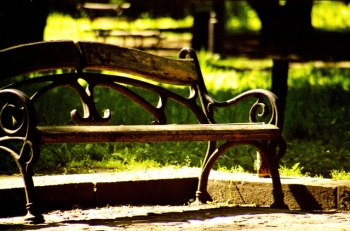My friend wrote, "Just try and soak up the atmosphere; don't worry about the language." Soon I'm off to Italy, my husband's native country. I'd written to my friend, "I am packed, but emotionally I'm undone, the feelings hanging out of my bags, unkempt and a mess. I've not been able to study the language as much as I'd hoped. I've lost several CDs, and I'm just so tired after work that I struggle with diligent verb conjugation, grammar and vocabulary."
And I've had some disheartening moments in that boot-shaped locale.
On my first trip, I went for an exploratory walk. I was in a residential neighborhood enjoying a sunny day, the houses like giant jolly ranchers stacked next to each other in shades of green, pink and yellow. Tile roofs perched regally in blue skies, pots sat by stone steps filled with bright bursts of red geraniums. A van pulled up beside me, a man alone--handsome and nicely dressed. I wasn't scared. There were children playing in the quaint yards, dogs barking, clothes hanging out to dry. I could hear voices from open windows, everyday life. I thought at first the man might need directions, but as I listened and picked up a few words, it registered in my brain that he thought I was a prostitute. I wasn't dressed provacatively--jeans and a T-shirt, lovely new Italian walking shoes. I felt stunned. I just stood there, paralyzed. I finally managed to say I was an American out for a walk--only a walk. He frowned and actually seemed disappointed, then sped away. I ran back to where Giovanni and I were staying as fast as I could. Later when I told Giovanni about the incident, he said rather nonchalantly, "Oh that neighborhood is known for prostitutes walking around." In some ways, it was kind of a funny story, but in another way, the experience left me feeling anxious and lonely.
Another time I answered the door of our apartment. I thought the man who stood there was a friend of Giovanni's. We talked for about fifteen minutes, and I made him an espresso. I was feeling a little proud of myself that I was communicating with someone who seemed to understand my American-accented Italian. But as the conversation wore on, I realized he was a salesman attempting to sell me sheets and towels. I still thought he knew Giovanni, then finally asked him, "Do you know my husband?" He shook his head. I yelled at him, "Vai, vai." (You go!). I felt like Lucy Ricardo in one of her madcap adventures. Only this was real. How dare he do that? Oddly, I kind of wanted to buy the towels, but I was too mad.
On my third or fourth trip, I finally found a way to ease some of the anxiety of being in a foregn country and regroup before we were off to another family event. (Giovanni has six brothers and sisters, and my introverted self is often overwhelmed by all the banter, and I understand about half of what's said.) I found a park bench in a small park. Mountains surrounded me, and a church sat atop a hill, its bells chiming the hour. I walked there every day with my journal. On that bench I poured out my thoughts, and wrote page after page. Before I ever began writing books or had any kind of formal writing life, there on that bench of contemplation writing became a remedy for bandaging my lonely heart, my fractured expectations of a country that I thought might offer me days of unlimited romance. In that safe place where I could spill my feelings on the page, I began to face the reality that I'd have to embrace the "limp" of my accent and difficulty in communicating. Writing became like my beautiful cane. When it came time to create a symbol for this website, that Italian wrought iron bench sat fixed in my head as the perfect image to represent the feelings of grace and rest I'd been able to experience in Italy when my emotions felt threadbare, my heart frayed.
And so I'll go back again with the feelings dangling out of my luggage, my messiness on display. Most times when I'm there, I feel as if I hang on by my fingernails just trying to survive, wanting to fit in, the alien aching to belong. But I don't. I stand out. I think I'm taking the right clothes, but then I don't look chic and sophisticated like my Italian sisters-in-law who glow without make-up with their gorgeous olive skin and know how to wear black without looking like they're in mourning. Sometimes I don't know where God fits into all of this--my emotional baggage. This trip I'll find another bench to write, to abide the limp, depend on the sturdiness of my decorative staff. This trip I'm praying to let go of self-consciousness, and not disslove into anxiety so that I don't give up loving others. Oh, God, let my language, my narrative be love.
And regardless of what else you put on, wear love. It's your basic, all-purpose garment. Never be without it. ~Colossians 5:14 (The Message)

